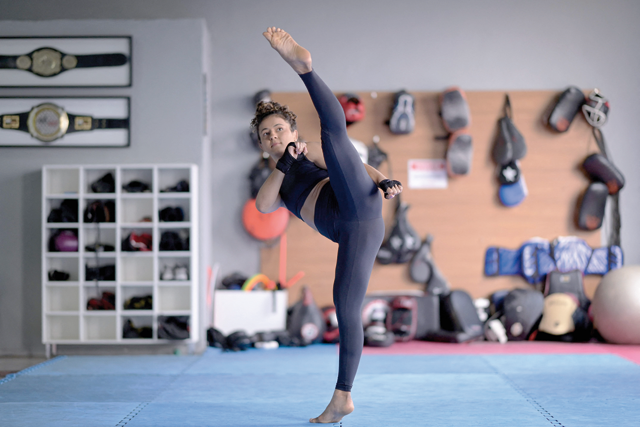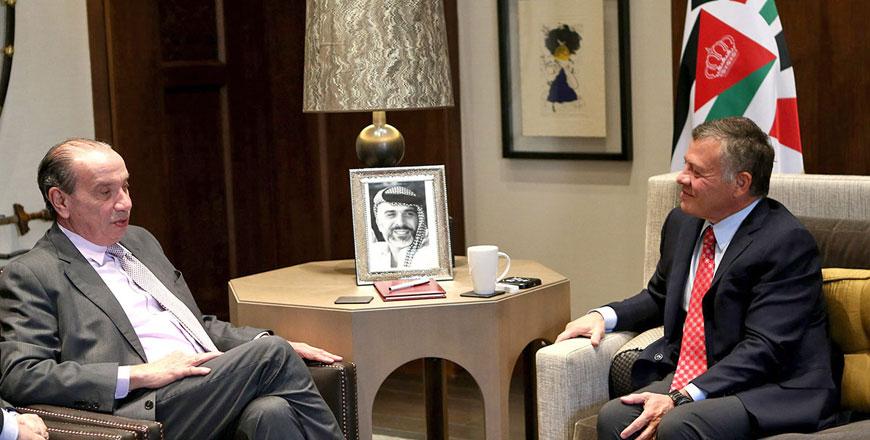You are here
Brazil seeks next generation of MMA champions
Aug 29,2023 - Last updated at Aug 29,2023

UFC fighter Natalia Silva, 26, who started out in taekwondo and almost by chance found out about MMA, trains at the Team Borracha gym in Contagem, Minas Gerais State, Brazil, on June 16 (AFP photo)
SAO PAULO — Self-described "nerd" Caio Borralho quit his chemical engineering studies to become a professional mixed martial arts (MMA) fighter, part of a new generation looking to reinvigorate the sport in Brazil, home of legendary champions.
With his good-natured face and glasses, Borralho, 30, does not fit the stereotype of the scowling, pain-inflicting Brazilian behemoths who have made the country famous as a home of Ultimate Fighting Championship (UFC) icons.
But he is part of a wave of young Brazilian fighters looking to make their mark and renew the South American country's dominance, after the retirement of ex-champions Anderson Silva in 2020 and Amanda Nunes in June, considered by many the greatest of all time.
Brazil has played a key role in the development of the multimillion-dollar international MMA cage-fighting frenzy, and in launching the UFC, its top competition, in 1993.
Brazilians hold a slew of records in the sport, and make up 20 per cent of the UFC's top-ranked fighters across its 13 weight divisions.
But the country currently has just one champion: reigning flyweight belt-holder Alexandre Pantoja.
"We're in a renewal period. There needs to be more investment at the base level," says Borralho.
"There's been more support in other countries, where the sport has grown really fast. That's what makes the difference in future results. The secret now is to concentrate on the base level, and we'll be dominating again in no time."
'Native-born MMA fighters'
Borralho is practicing hand-to-hand combat with around 20 other fighters at a gym in central Sao Paulo, looking to make good on his vow to bring home the UFC middleweight title.
Since making his UFC debut in April 2022, he is undefeated in four bouts.
But he admits he still has work to do.
"I need more fight time, more experience," says Borralho, who grew up practicing judo in the north-eastern city of Sao Luis de Maranhao, took up MMA at 19 and left university a year before graduating to chase his UFC dream.
Other Brazilian fighters such as ex-champions Charles "Do Bronx" Oliveira and Alex Pereira are also on campaigns to restore the country's dominance.
Brazil may be the land of football, but the country was instrumental in the rise of the UFC, thanks to international interest in Brazilian jiujitsu — a reinvention of the ancient Japanese martial art — and "vale tudo," a violent, no-holds-barred combat sport.
"UFC is in Brazilians' DNA," says Eduardo Galetti, the UFC's vice president in Brazil.
"Young fighters used to start out in another discipline and discover MMA. Now they're native-born MMA fighters."
Brazil has the second-most UFC fighters of any country, and is its second-largest market, after the United States, he says.
'Fighting spirit'
MMA has become a lucrative business for numerous Brazilian fighters, some of whom have become superstars on the level of Neymar.
"I don't just want to be a champion. I want to be a champion whose story has an impact on other people's lives. I want to inspire dreams," says 26-year-old fighter Natalia Silva.
Since making her debut in the octagon in June 2022, the flyweight phenom has won all four of her bouts and risen to 13th in the UFC rankings.
"God willing, that belt will be ours very soon," she says, training at a gym on the outskirts of the south-eastern city of Belo Horizonte.
She started out studying tae kwon do before discovering the UFC, whose women's tournaments have grown exponentially since their launch in 2013 — thanks in no small part to Nunes, the trailblazing champion who held both the featherweight and bantamweight belts.
Brazilian women today outrank the men, with 23 of the country's 42 ranked fighters.
"Brazilians are born with a drive to win. It's a country where most people have hard lives," says MMA trainer Carlos Junior Lopes.
"The difficulties we face build up our fighting spirit. Combine that with the right technique, and there's no stopping us."
Related Articles
HONG KONG — Mark Striegl makes his UFC debut in Abu Dhabi this weekend having taken a path forged by centuries of feared Filipino warriors a
HONG KONG — Jiri Prochazka was a football hooligan in his native Czech Republic until martial arts and an ancient Japanese text inspired him
AMMAN — His Majesty King Abdullah on Sunday met with Brazilian Foreign Minister Aloysio Nunes, a Royal Court statement said.During the meeti


















